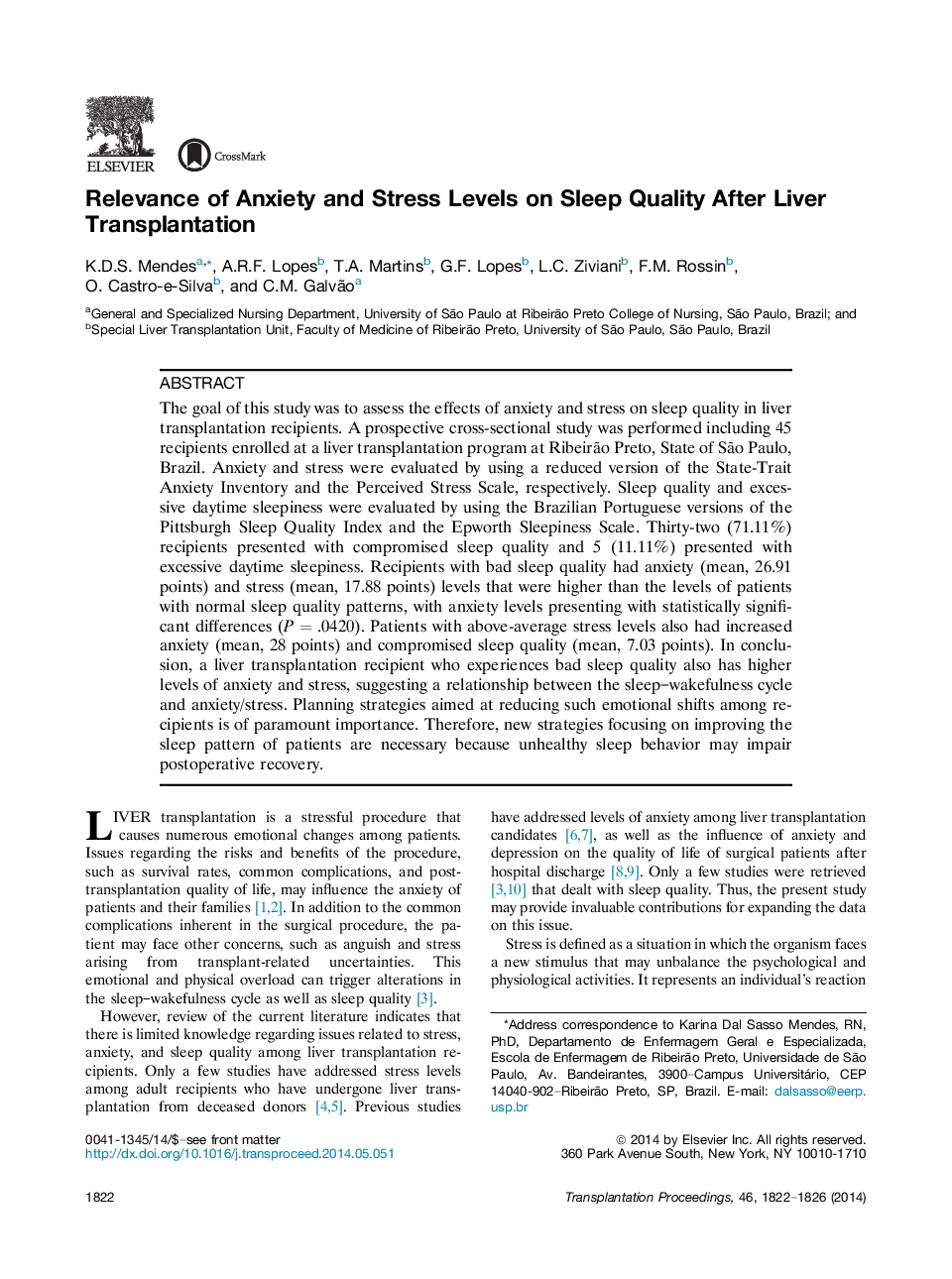| Article ID | Journal | Published Year | Pages | File Type |
|---|---|---|---|---|
| 6248674 | Transplantation Proceedings | 2014 | 5 Pages |
Abstract
The goal of this study was to assess the effects of anxiety and stress on sleep quality in liver transplantation recipients. A prospective cross-sectional study was performed including 45 recipients enrolled at a liver transplantation program at Ribeirão Preto, State of São Paulo, Brazil. Anxiety and stress were evaluated by using a reduced version of the State-Trait Anxiety Inventory and the Perceived Stress Scale, respectively. Sleep quality and excessive daytime sleepiness were evaluated by using the Brazilian Portuguese versions of the Pittsburgh Sleep Quality Index and the Epworth Sleepiness Scale. Thirty-two (71.11%) recipients presented with compromised sleep quality and 5 (11.11%) presented with excessive daytime sleepiness. Recipients with bad sleep quality had anxiety (mean, 26.91 points) and stress (mean, 17.88 points) levels that were higher than the levels of patients with normal sleep quality patterns, with anxiety levels presenting with statistically significant differences (P = .0420). Patients with above-average stress levels also had increased anxiety (mean, 28 points) and compromised sleep quality (mean, 7.03 points). In conclusion, a liver transplantation recipient who experiences bad sleep quality also has higher levels of anxiety and stress, suggesting a relationship between the sleep-wakefulness cycle and anxiety/stress. Planning strategies aimed at reducing such emotional shifts among recipients is of paramount importance. Therefore, new strategies focusing on improving the sleep pattern of patients are necessary because unhealthy sleep behavior may impair postoperative recovery.
Related Topics
Health Sciences
Medicine and Dentistry
Surgery
Authors
K.D.S. Mendes, A.R.F. Lopes, T.A. Martins, G.F. Lopes, L.C. Ziviani, F.M. Rossin, O. Castro-e-Silva, C.M. Galvão,
